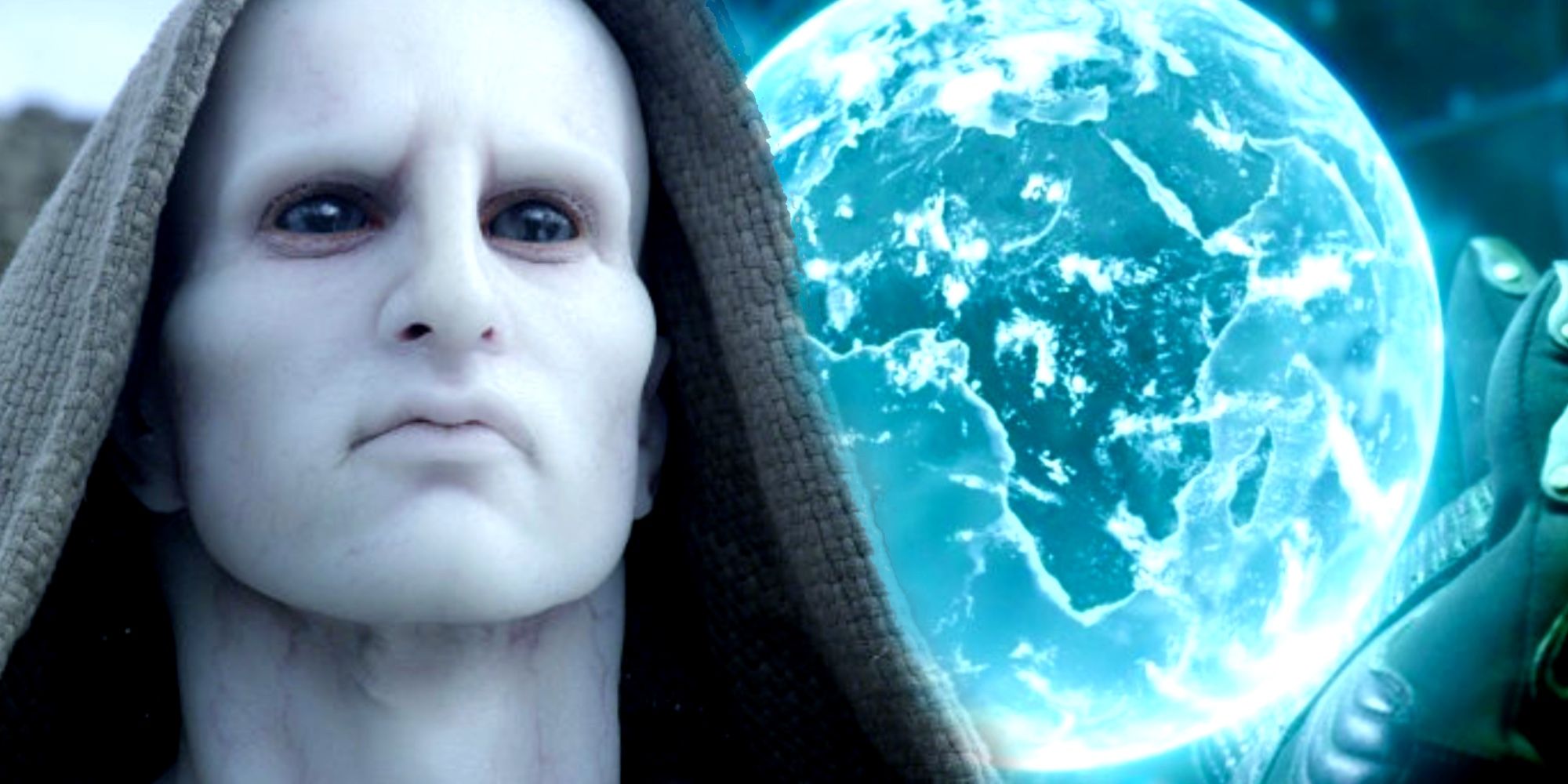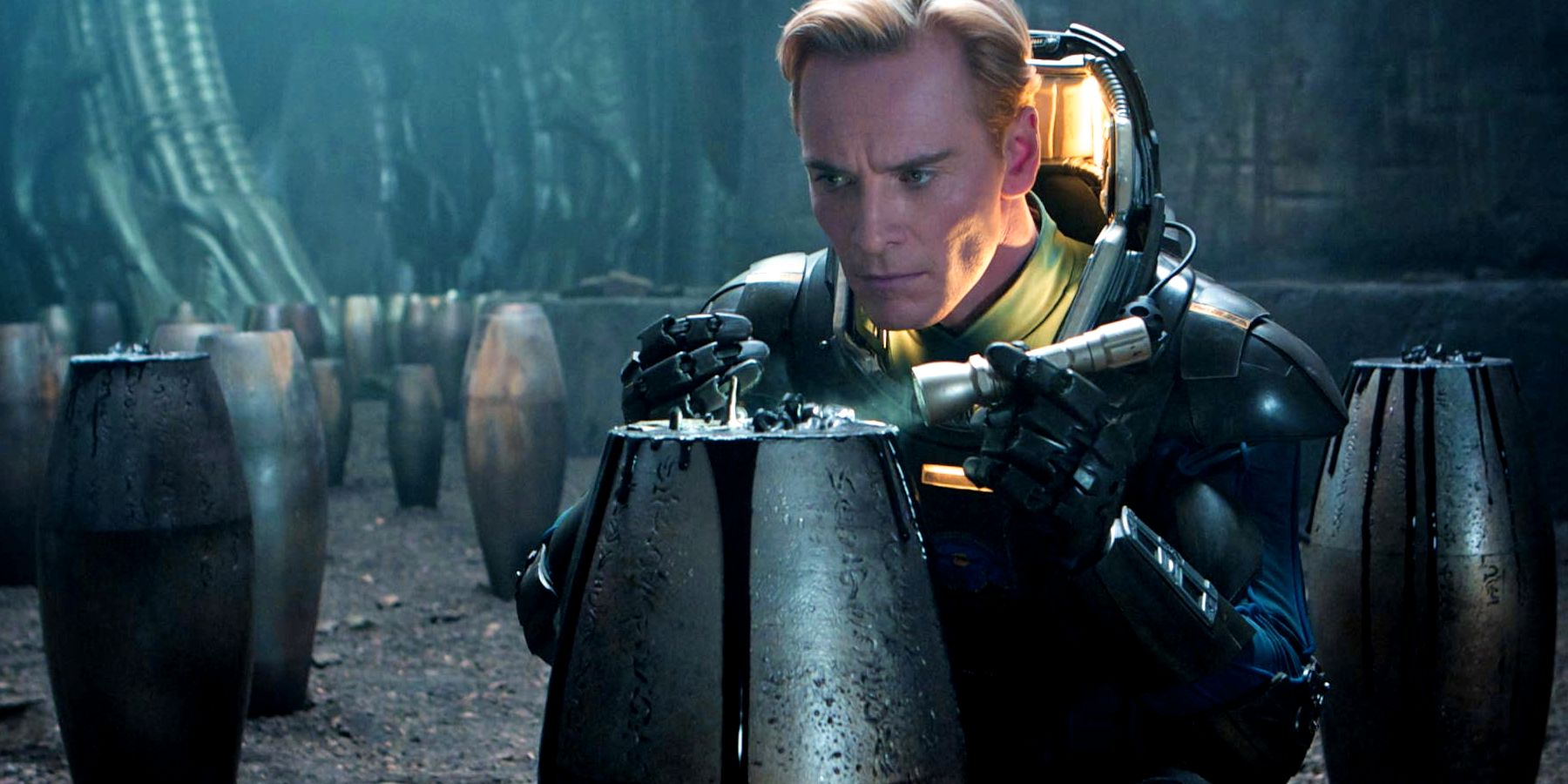In Ridley Scott’s 2012 sci-fi mystery, Prometheus, why were the engineers heading to Earth? The central themes that pervade both Prometheus and its 2017 sequel, Alien: Covenant, can help one better understand this, as both movies deal with the fraught relations between creator and creation, reflecting a classic tussle for power amid the two. Prometheus follows a human expedition headed by archaeologists Elizabeth Shaw (Noomi Rapace) and Charlie Holloway (Logan Marshall-Green), wherein humanity seeks knowledge about belief, immortality, and death from beings that appear god-like in comparison to mortals.
The opening shot of Prometheus features an unforgettable sequence wherein an Engineer named Sacrifice drinks the black goo - which was later discovered by the android, David, on LV-223 - from an urn to create humanity itself, which is accomplished through an act of literal disintegration. The ritualistic sacrifice of this particular Engineer is not different from the lore surrounding the Mayans and the Incas and carries religious undertones, which is subtly hinted at throughout Prometheus, especially when it is revealed that an Engineer was sent to Earth so as to prevent humanity from being consumed by cruelty and aggression, who is believed to be Christ himself. Although very little is known about these beings, their origins, and motivations, it is established that Engineers are a primordial species, with access to cutting-edge technology, which also involved genetic engineering.
When the human expedition team enters the Derelict’s Orrery, the murals on the walls, along with the corpse of an Engineer, exemplify that they were equipped with bio-spacesuits and hazmat suit-styled bio-masks, which could potentially be protection gear for the bioweapons found at the alien temple. The crew of the UCSS Prometheus, especially Peter Weyland, are on a doomed quest right from the start. Weyland wishes to prolong his lifespan, and demands so from his maker, without a clear understanding of the core beliefs of the alien race. What ensues is a reversal of the creator-creation dynamic in Blade Runner, as here, the primordial creator views Weyland’s request as a fall from grace, which is an indication of failure as a race that does not deserve redemption. Prior to this, Weyland’s daughter, Vickers, questions his hubris, driving the point home: "A king has his reign, and then he dies. It's inevitable.”
Engineers brought life to a world, which is not necessarily limited to Earth, as the act of sacrifice can just be akin to assuming the role of “a gardener in space”. Scott himself likened this superior race to the dark angels in Milton’s Paradise Lost and the symbolic etchings of William Blake. Hence, the reason why the Engineers were heading to Earth was to annihilate the human race, possibly with the aid of the bioweapons they had created. This could be triggered either by the multifaceted transgressions committed by humans over the span of a millennium, or a specific event that warranted the Engineers to disavow and eradicate mankind as a whole.
It is also interesting to note that in Prometheus, David, who is a creation of man, does everything to usurp the creator-creation status quo, going as far as to say “Doesn’t every child want their parents dead?” This ties in with humans entering the space age, which eventually propels the events of 2089, which is essentially a quest to play God themselves. After all, like mythology and literary explorations dictate, every being with the power to create wishes to limit their creations so as to prevent the achievement of singularity.


